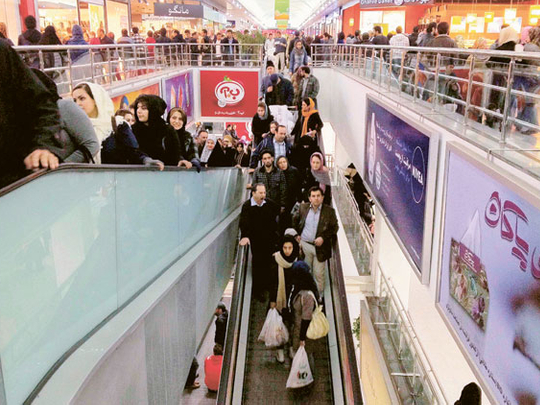
Dubai: The severing of Iran's banking ties to the outside world on Saturday could cripple the country, local economists say.
On Saturday, 19 banks and 25 financial institutions from Iran, some of which the United States accuses of financing Iran's nuclear programme or terrorism, were blocked from using SWIFT, the financial messaging system which links more than 9,700 banking organisations, securities institutions and corporate customers in 209 countries. In 2010, the Iranian banks and institutes that were blocked made over 2 million cross-border payments using SWIFT.
"It is the killing point in the lifeline of Iran's economy," said Dr Abdul Razzaq Al Fares, Chief Economist and CEO of Research at the Dubai Economic Council.
"The SWIFT move will not only strangle overseas Iranian businesses but will make the life of Iranians more difficult," he said. "It will affect remittances from the UAE as most of the exchange companies can't conduct even personal transactions to Iran."
Al Fares said the SWIFT ban will also speed the collapse of the rial.
One Dubai economist, who asked not to be named, said the SWIFT ban won't stop Iran from finding ways around it.
"Cutting off formal fin-ancial channels does not necessarily spell an end to ways money can be transferred between willing partners," he said.
Tehran has proven to be resilient in bypassing sanctions, he said, largely because it still has key economic partners ready to work with it. These include China, India, Malaysia and Turkey, which show no signs yet of joining the West's sanctions.
Even though Iran could potentially hold out with these sanctions forever, he added that the economic impact on Iranians could result in social unrest. "I believe that the pressure of sanctions will lead in the long run to domestic and political instability in Iran."
Al Fares agreed Iran could find a way around the ban, but to do so would be "very costly, unsecured and very complicated."
Traders to suffer
Iranian traders in Dubai estimate they are suffering a 40 per cent decline in transactions due to the tougher sanctions.
About 8,000 companies owned by Iranians operate in the UAE, according to the Iranian Business Council in Dubai, and deal mainly in food, tyres, electronics, raw materials, steel and iron industries.
One trader, who also wished to remain anonymous, said that without the banks, his business would be shut down completely.
"We already have suffered from some banks, which are freezing accounts and blacklisting Iranian companies," he said, adding that it is already very difficult to open a bank account for a UAE-based Iranian-owned company that has business with Iran.
"This is devastating news for our businesses. I don't know what we can do. There are no more options or windows to be opened."












